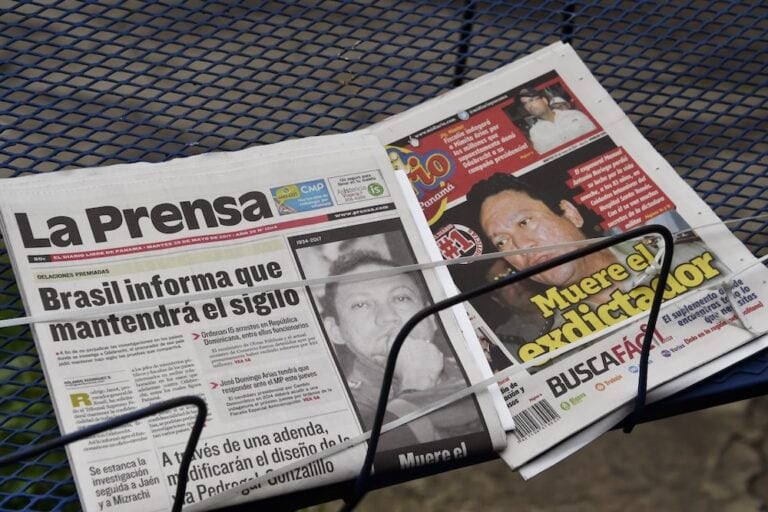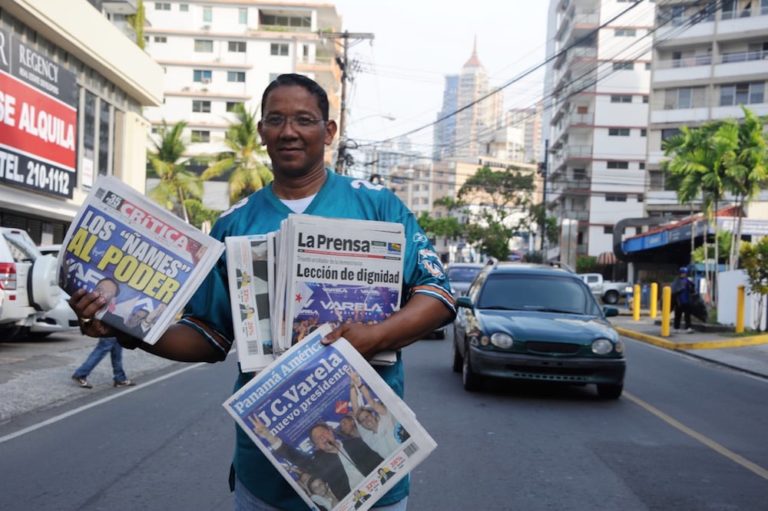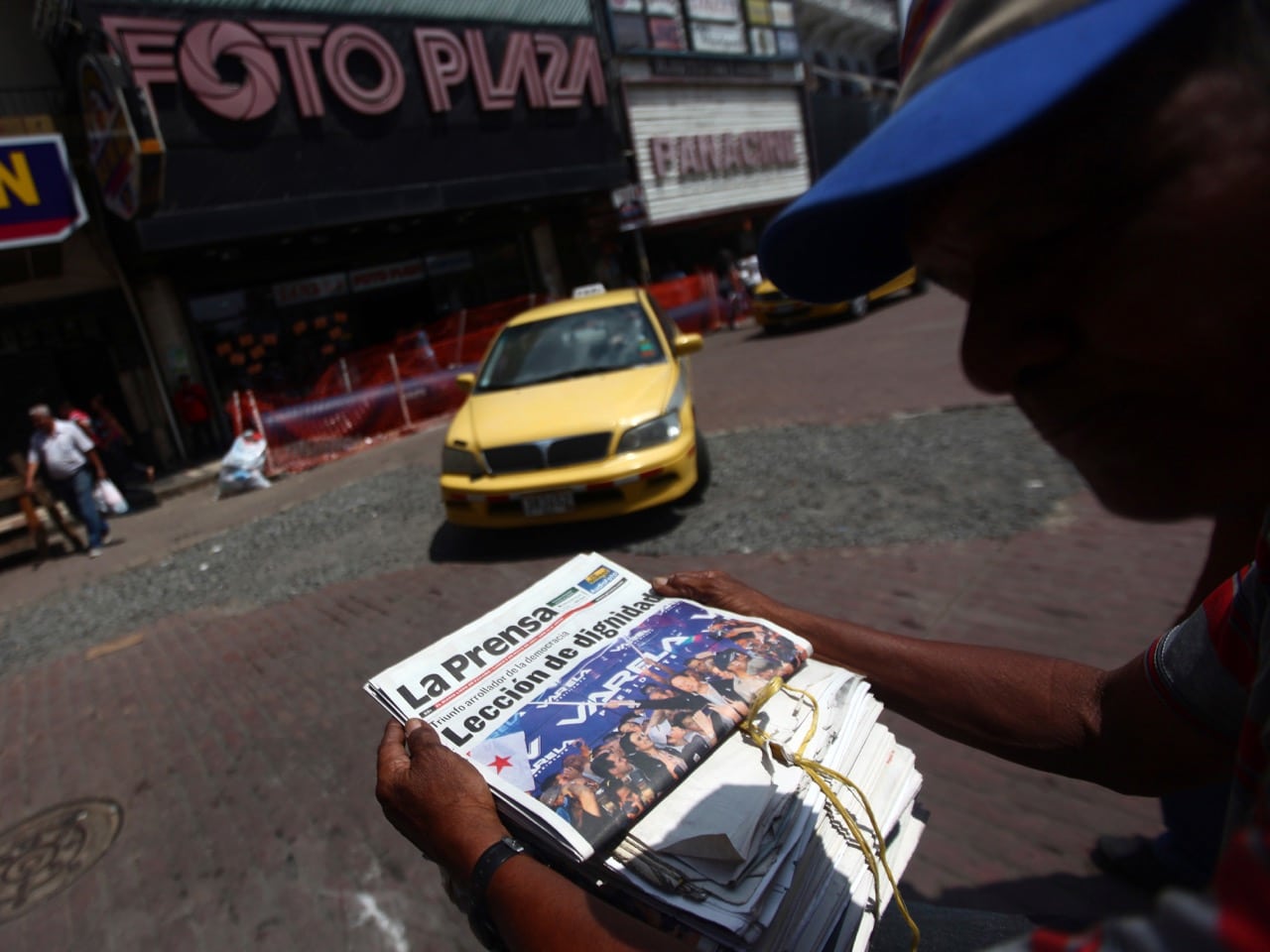(RSF/IFEX) – In a letter to Supreme Court President Mirtza Fansechi de Aguilera, RSF protested Julio Enrique Briceño’s prohibition from leaving the country and his placement under judiciary control. Briceño, a cartoonist for the daily “La Prensa”, is charged with “crimes against honour” and could be sentenced to two years in prison. The organisation asked […]
(RSF/IFEX) – In a letter to Supreme Court President Mirtza Fansechi de Aguilera, RSF protested Julio Enrique Briceño’s prohibition from leaving the country and his placement under judiciary control. Briceño, a cartoonist for the daily “La Prensa”, is charged with “crimes against honour” and could be sentenced to two years in prison. The organisation asked the Supreme Court president to do everything possible in order to have these measures annulled and the charges dropped. “It seems outrageous that a cartoon could result in criminal charges being filed against its author,” declared RSF Secretary-General Robert Ménard. He also stated that he was “shocked” by the motive of the persecution, “crimes against honour,” “which can be interpreted subjectively and arbitrarily.” United Nations Special Rapporteur for Freedom of Expression Abid Hussain established, in a January 2000 document, that “imprisonment as punishment for the peaceful expression of an opinion constitutes a serious violation of human rights.”
According to information collected by RSF, on 4 July 2001, Briceño was notified by a judge of the preventive measures prohibiting him from leaving the country. He must also report to the judge’s chambers every fifteen days to sign the court records. His lawyers announced their intent to file a writ of habeus corpus with the Second Superior Tribunal. The cartoonist was charged with “crimes against honour” by former Democratic Christian Party President Ricardo Arias Calderon, after publication, in 2000, of a political cartoon in the daily “La Prensa”. Criminal Code Article 175 establishes prison sentences of up to two years for this crime.
In a December press release, RSF asked Panamanian authorities to do everything in their power to have prison sentences for press offences removed from the country’s legislation. The organisation remarked that the punishment is out of proportion to the offence, has an inhibitory effect on journalists, and is therefore harmful to their right to inform and the right of society as a whole to be informed. Approximately forty journalists are currently facing legal actions for “insult” (“desacato”) or “slander and damages.”


